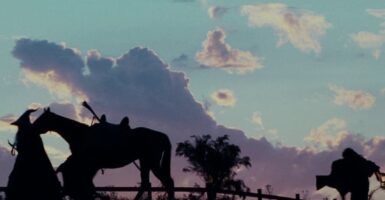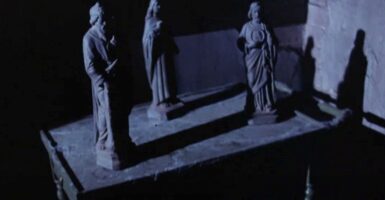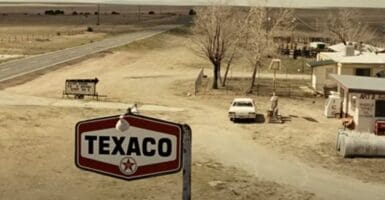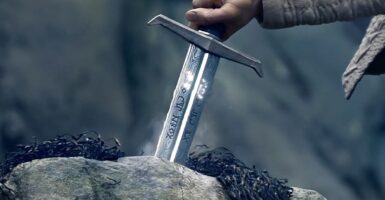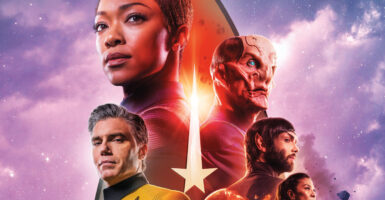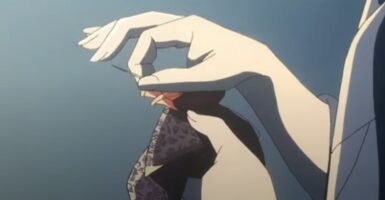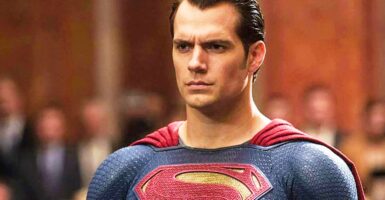Star Trek: Discovery Proves Deep Space Nine Hero Endangered the Galaxy
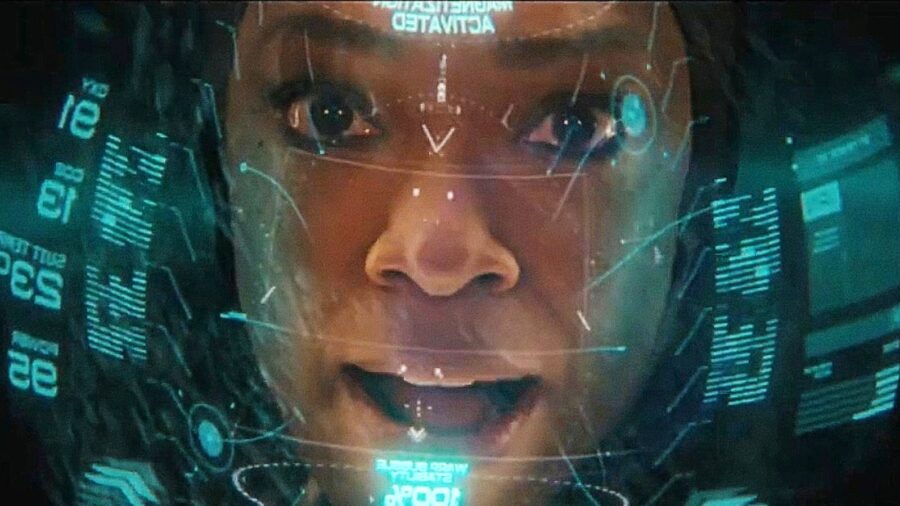
Tribbles have always been the cutest creatures in all of Star Trek, but they’re a lot more dangerous than they look. In fact, the Short Treks episode “The Trouble With Edward” revealed it was a hapless Starfleet scientist who modified tribble DNA and caused them to rapidly multiply, a reproductive ability that ended up destroying his ship. A recent Star Trek: Discovery episode revealed tribbles are still menacing the galaxy in the 32nd century, and in a bizarre twist, these creatures wouldn’t be able to do so if Captain Sisko hadn’t violated the Temporal Prime Directive.
Trouble With Tribbles
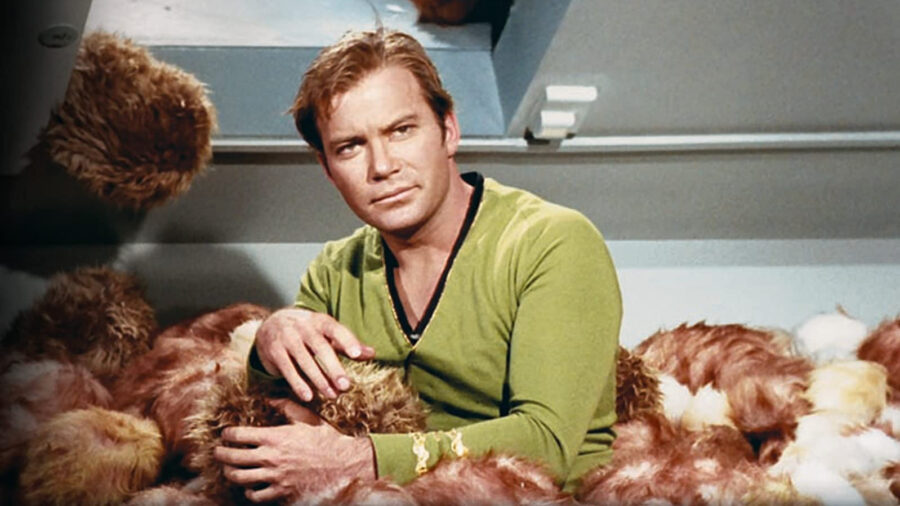
To show how tangled all of this tribble mythology is, we’re going to have to go back to the beginning. The Star Trek: The Original Series episode “The Trouble With Tribbles” had Captain Kirk and crew encountering the cute creatures that won’t stop multiplying. The episode mostly plays it for laughs, but we see how the tribbles’ ability to quickly reproduce puts Deep Space Station K7 in danger.
Trials And Tribble-actions
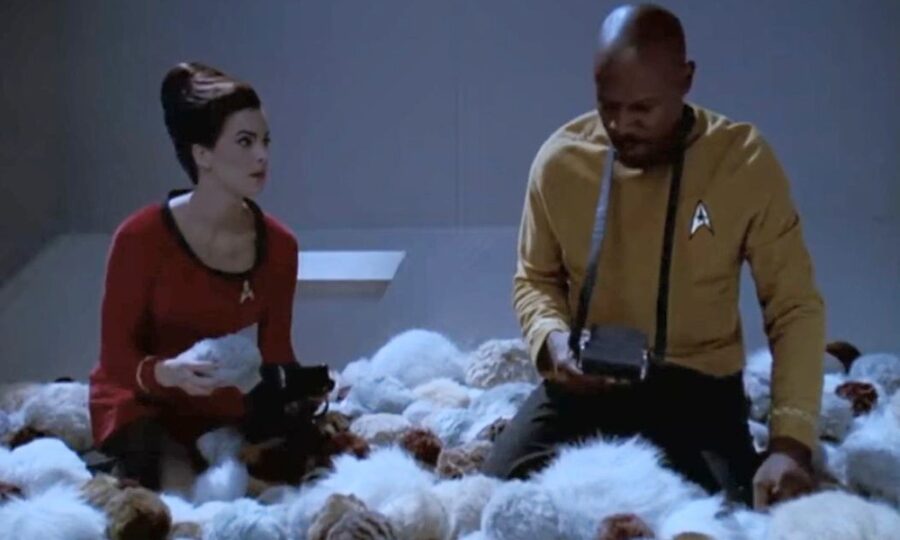
In most of the decades afterward, Star Trek didn’t expand on much of the tribble mythology outside of The Animated Series, but that changed in a big way with the Star Trek: Deep Space Nine episode “Trials and Tribble-actions.” In that episode, Captain Sisko must travel back in time to keep a time-traveling villain from blowing Captain Kirk up by putting a bomb in a tribble (no, really). Worf reveals that the Klingons hated the tribbles so much they hunted the creatures to near-extinction, an event Odo sarcastically dubbed “The Great Tribble Hunt.”
Discovery Shows Tribbles Are Still A Danger
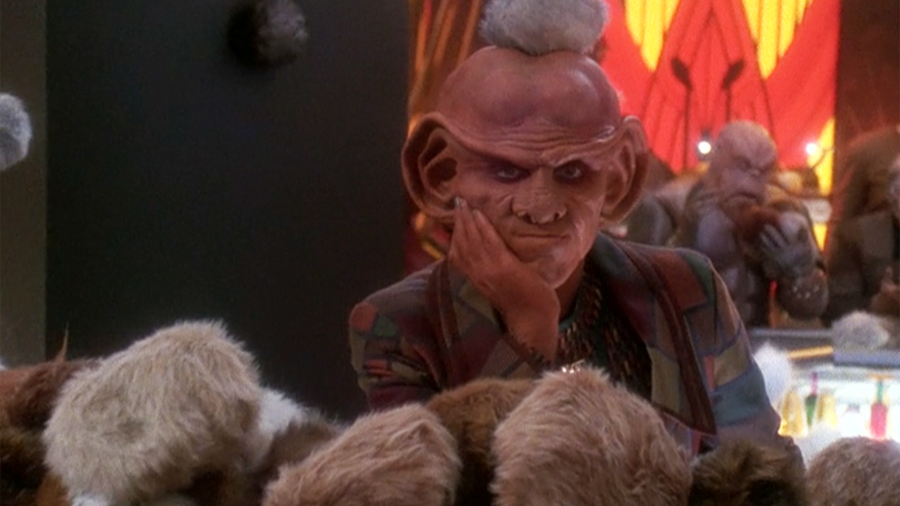
What does all of this have to do with Star Trek: Discovery and its portrayal of tribbles? Following his successful mission to the past in “Trials and Tribble-ations,” we learn that Sisko omitted one key detail in his report to Temporal Investigations. Odo brought a tribble back with him, and its ability to quickly reproduce brought these creatures back from near extinction and caused Deep Space Nine to start getting overrun with tribbles, just like K7.
Set After Edward Larkin’s Modifications

That episode, like most tribble episodes, played these cutesy creatures up for laughs, but the Short Treks episode “The Trouble With Edward” revealed just how dangerous they could be. After Starfleet officer Edward Larkin modifies tribble DNA so they are “born pregnant,” they end up multiplying so quickly that it causes the destruction of his ship. All of the crew except Larkin escaped, with the mad scientist staying behind with the galactic menace he had unleashed.
An Offhand Comment
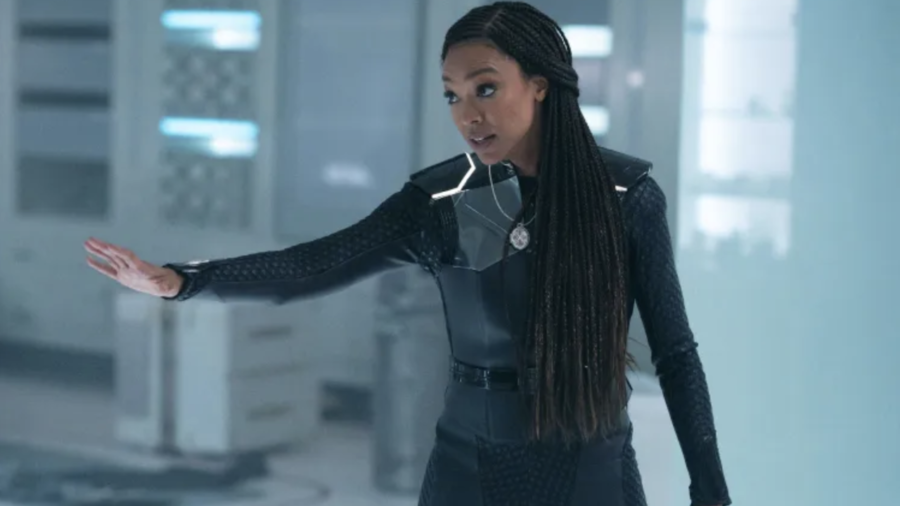
The Star Trek: Discovery episode “Mirrors” casually confirms that tribbles are still around and still just as much of a menace when the courier Moll sarcastically asks a Breen if he wants to check her ship again to “make sure that I didn’t smuggle any tribbles onboard?” Her sarcasm aside, it actually makes perfect sense that galactic empires like the Breen would scan for tribbles at the same time they scan for more conventional threats like phasers. All it takes is a single tribble to overrun an entire ship or space station, meaning these creatures effectively endanger everyone in the galaxy.
Odo Doomed The Future
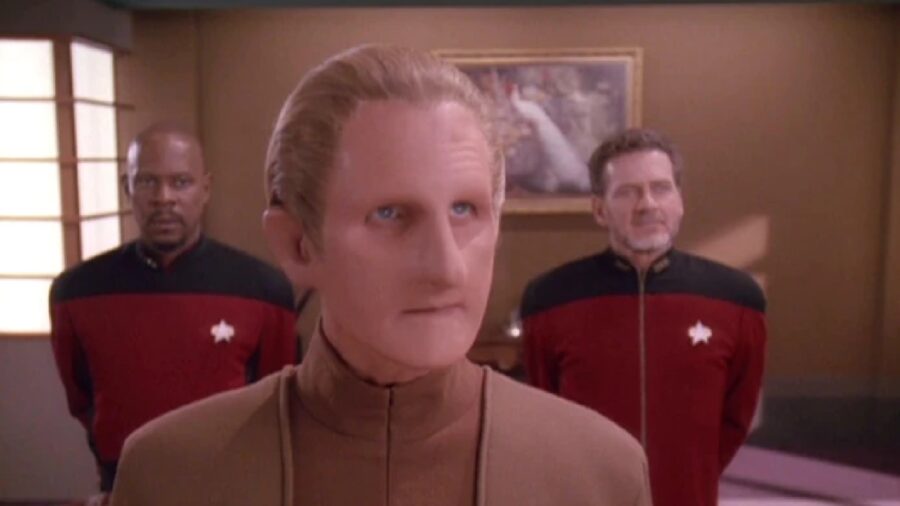
I truly love his character, but the simple truth is that Star Trek: Discovery characters wouldn’t be dealing with tribbles in the 32nd century if Sisko hadn’t let Odo bring one of the creatures with him to the 24th century. Sisko is a character who isn’t afraid to get his hands dirty, and if a fan mentions “Sisko’s war crimes” in a conversation, you’d have to ask which ones he’s even talking about. Ironically enough, though, his biggest crime might have been an act of kindness…violating the Temporal Prime Directive in a way that brought the tribbles back from extinction and let them once more pose a threat to everyone in the galaxy.
Sorry, space dad. You really dropped the ball on this one, and the galaxy has been paying for it for nearly a millennia.
